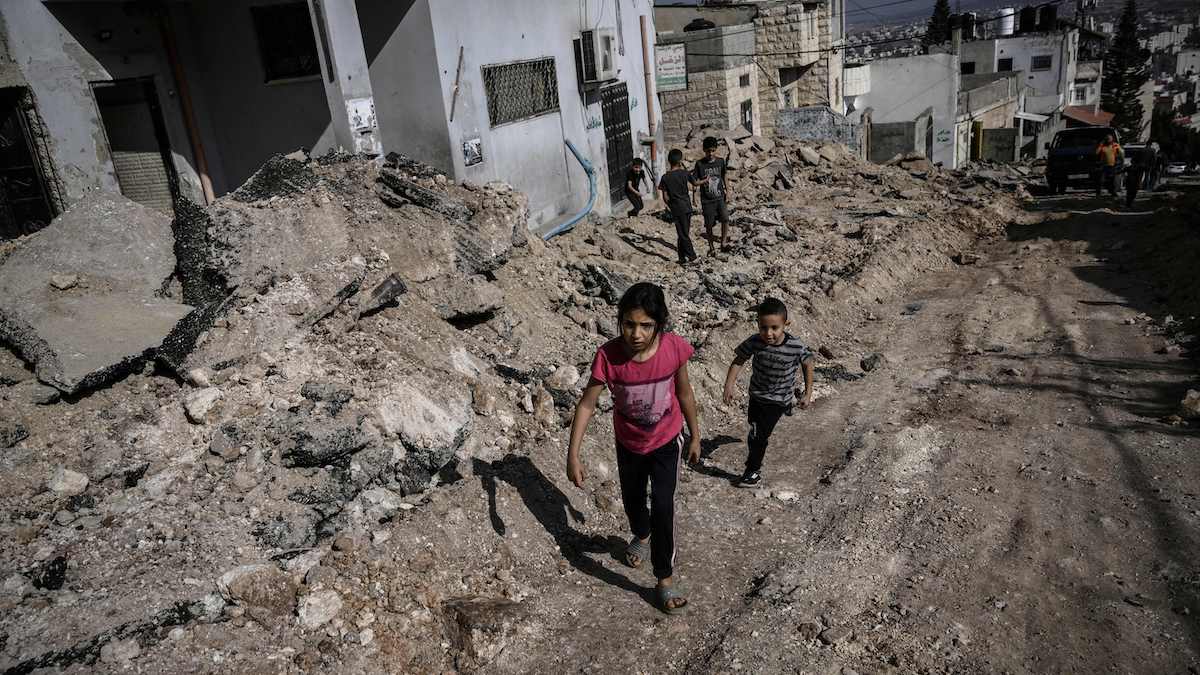As the war between Israel and Hamas rages on, a lawmaker from Massachusetts is calling for "an important tactical change" to prioritize both the safety of civilians in Gaza and the return of hostages.
Rep. Seth Moulton — a Democrat and a Marine who served four tours in Iraq — has consistently voiced support for Israel and condemned Hamas for invading and taking hundreds of hostages.
Moulton has said before that Israel should "learn from our mistakes" in Iraq to avoid what he calls "another 'forever war' like we created for ourselves."
On Friday, he outlined what he feels should be done to get civilians out of harm's way, provide humanitarian aid, defeat Hamas and return those taken from Israel.
"From the outset of this conflict, I have urged Israel to learn from America's successes and failures in the War on Terror," he said in the opening of his statement, which can be read in full below. "One of the best tactical and moral decisions our forces made was to urge civilians to evacuate cities like Najaf and Fallujah, giving them time to leave before clearing the area of terrorists. An estimated 90% of civilians left Fallujah before U.S. forces entered the city, limiting civilian casualties to a fraction of the number killed in Gaza already."
In an interview with NBC10 Boston Friday, Moulton elaborated on how to incentivize civilian evacuation.
"What we learned [in Iraq and Afghanistan] is that if you provide incentives for civilians to leave a combat area, many of them will take it," Moulton said. "That means not just a little bit of humanitarian aid, but a lot of humanitarian aid."
The congressman added that if some of Hamas' fighters "give up and go too, that's probably a good thing."
"They're reconcilables, you want them out," Moulton said. "What it ends up doing is leaving the hardcore militants who need to be eliminated."
Sign up for our Breaking newsletter to get the most urgent news stories in your inbox.
Moulton said that the war differs from that between Russia in Ukraine in that it is a "counterinsurgency operation" rather than a conflict between two states' armed forces.
"Separating out the militants, eliminating the terrorists while winning over the civilians so they don't become recruited as future terrorists. That's the challenge," he said.
Read Moulton's full statement:
From the outset of this conflict, I have urged Israel to learn from America's successes and failures in the War on Terror. One of the best tactical and moral decisions our forces made was to urge civilians to evacuate cities like Najaf and Fallujah, giving them time to leave before clearing the area of terrorists. An estimated 90% of civilians left Fallujah before U.S. forces entered the city, limiting civilian casualties to a fraction of the number killed in Gaza already. Just as importantly, that strategy weakened the insurgency as some supporters gave up instead of fighting. U.S. Marines eliminated the rest.
The IDF should adopt a similar strategy. Fundamentally, it's not a so-called "humanitarian pause," as many have urged, which suggests temporary relief before going back to status quo, but a civilian evacuation, both of the hostages (through negotiation) and innocent Palestinians (through a surge of aid). In addition to providing safe corridors and safe harbor for fleeing civilians, humanitarian aid must be a continuous and integral part of Israel's military operation. This is another key lesson from Iraq and Afghanistan. By doing so, the IDF will demonstrate both to Palestinians and the rest of the world that it is living up to its commitment to protect Palestinian life. It will also starve Hamas of fighters and support.
This would be an important tactical change. Israel must provide a dramatic alternative to remaining in Northern Gaza, and they achieve that not with a minimum of aid but with a massive surge of aid to the South, enough to get civilians to leave despite Hamas' evil efforts to make them stay. The IDF must also show Palestinians that they will be safe where the aid is located, and I suspect Israel can win some international partners in that effort.
To be clear: getting the hostages out remains a top priority. With hostages scattered in tunnels throughout Gaza, saving them will come through diplomatic negotiations, not military means — another reason for Israel to pursue this approach.
Israel has the unequivocal right and responsibility to defend itself against terrorism. I am also deeply concerned by the reports of massive civilian casualties in Gaza.
Of course, if Hamas actually cared about the Palestinian people, the group would surrender before Israel has to go in and eliminate it. But since that is unlikely to happen, it's important for Israel to keep in mind another fundamental lesson we learned in Iraq and Afghanistan: that you can never create more terrorists than you kill. Civilian casualties ultimately help Hamas' recruiting. It is therefore both a moral and military imperative for Israel to reduce innocent suffering as it executes its operations moving forward.




